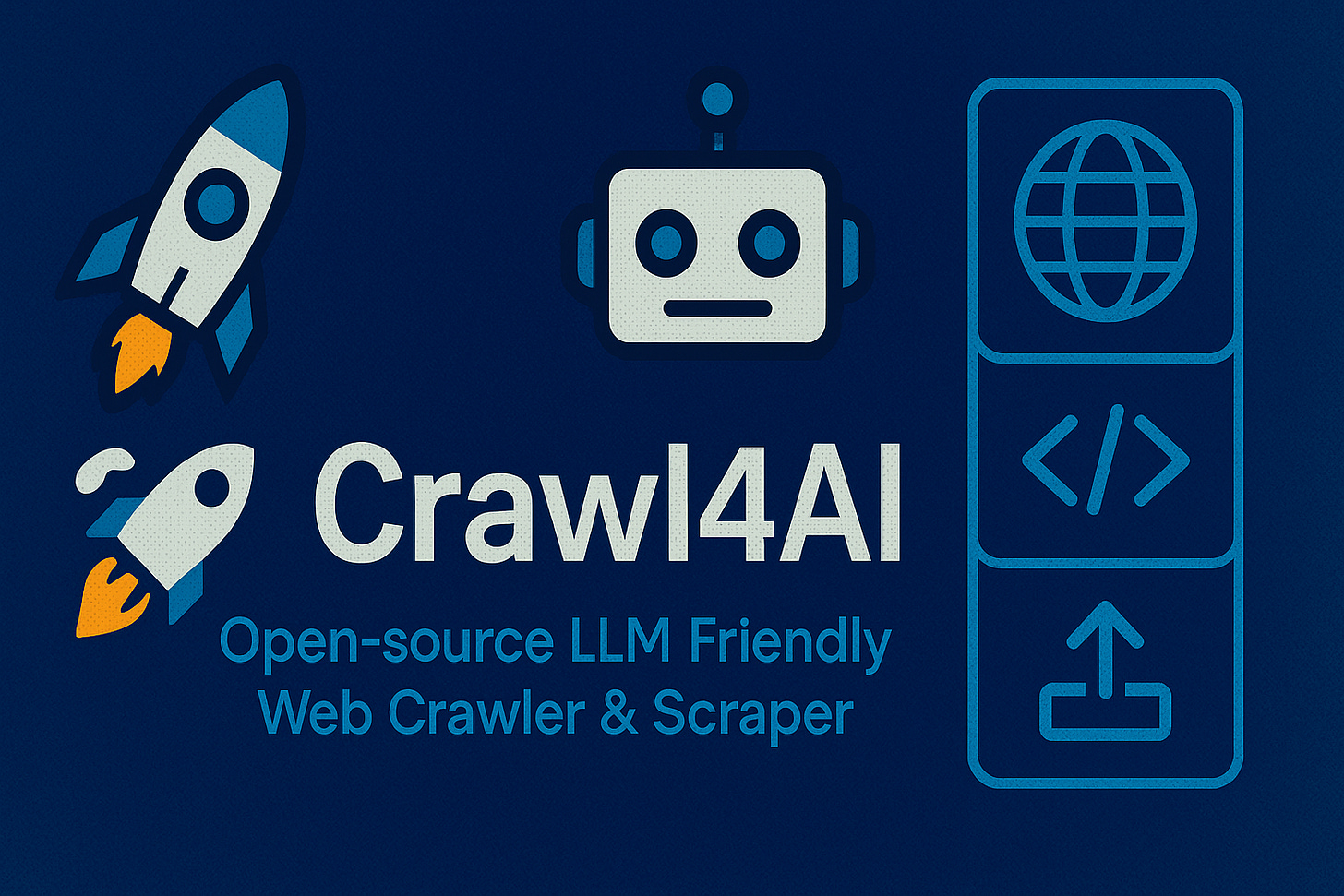Why Crawl4AI Might Be the Missing Link in Your LLM Stack
Open-Source Intelligence Crawling for Agents, RAG, and Beyond
If you've spent any time building with large language models (LLMs), you've probably hit the same wall: they know everything—until they don't. The limits of their knowledge often lie behind real-world HTML, infinite scroll, JavaScript-rendered tables, or proprietary APIs.
And while everyone is talking about RAG (retrieval-augmented generation) and autonomous agents, nobody seems to talk enough about the infrastructure problem underneath it all: How do you get the data you want, cleanly, and cheaply, in a structure your AI can actually use?
This is where Crawl4AI enters the picture.
⚙️ What is Crawl4AI?
Crawl4AI is an open-source, Python-based web crawler and scraper, specifically optimized for LLM workflows. It's actively maintained, highly modular, and comes packed with features designed to help you extract structured data and LLM-ready Markdown from the modern web.
But this isn't just another Scrapy clone or Selenium wrapper. It's built from the ground up with the AI era in mind.
💡 Why It's Different (and Useful)
Crawl4AI combines classic scraping tactics with smart LLM-aware tooling:
Markdown Output: Clean, prompt-ready text for RAG or fine-tuning.
Adaptive Crawling: Learns website structure over time, reduces noise.
Virtual Scroll Handling: Works on infinite-scroll pages.
Link Intelligence: Prioritizes links based on relevance using multi-layer scoring.
Async Seeder: Massively scalable URL discovery.
Browser-Aware: Playwright integration, proxy support, session control.
No Vendor Lock-in: Fully local, open-source, deployable via Docker.
This is not a SaaS pitch. There are no API keys, no throttled endpoints. You own the crawl—and the data.
🧪 Quickstart: Crawling in 3 Minutes
Here’s how you can spin up a working crawler in under 5 minutes:
🐍 1. Install the package
pip install -U crawl4ai
python -m playwright install --with-deps chromium
crawl4ai-setup
crawl4ai-doctor🧠 2. Basic Python Usage
import asyncio
from crawl4ai import *
async def main():
async with AsyncWebCrawler() as crawler:
result = await crawler.arun(
url="https://www.nbcnews.com/business",
)
print(result.markdown)
if __name__ == "__main__":
asyncio.run(main())🖥️ 3. Or try the CLI
crwl https://www.nbcnews.com/business -o markdownWant to go deeper?
crwl https://docs.crawl4ai.com --deep-crawl bfs --max-pages 10
crwl https://example.com/products -q "Extract all product prices"You can also run it fully via Docker and interact with it through a local web interface.
🚀 What You Can Build With It
Crawl4AI isn’t the product—it’s the tool behind your product. Think:
Knowledge Bases for private GPTs
Data Pipelines for market monitoring or trend analysis
AutoGPT-style Agents with custom context
LLM Fine-Tuning Sets for domain-specific tasks
Local Semantic Search Engines across scraped content
It basically gives you the raw material to build smarter, more grounded AI systems—without depending on commercial APIs or brittle scraping hacks.
⚖️ The Trade-offs (Because Yes, There Are Some)
Let’s be honest—this isn’t plug-and-play for everything.
Infinite scroll still requires some CSS inspection and tuning.
JavaScript-heavy sites may behave inconsistently.
Anti-bot protections will force you to work with proxies or session tricks.
It’s developer-centric. Not no-code.
But if you know your way around Python and want control, it's a no-brainer.
🔮 Final Take
Crawl4AI is to RAG what LangChain is to prompting. It’s part of a growing layer of infrastructure that treats web data as a first-class citizen in the AI stack.
It's not flashy. It's not VC-funded. It’s useful. And increasingly, that’s what matters.
📚 Explore it here:
GitHub: unclecode/crawl4ai
Docs & Playground (after local setup)
If you're serious about feeding your models with meaningful, current data, Crawl4AI should probably live in your toolbox.


